Cocteau Twins - Interview with Robin Guthrie
by John Clarkson
published: 8 / 1 / 2006
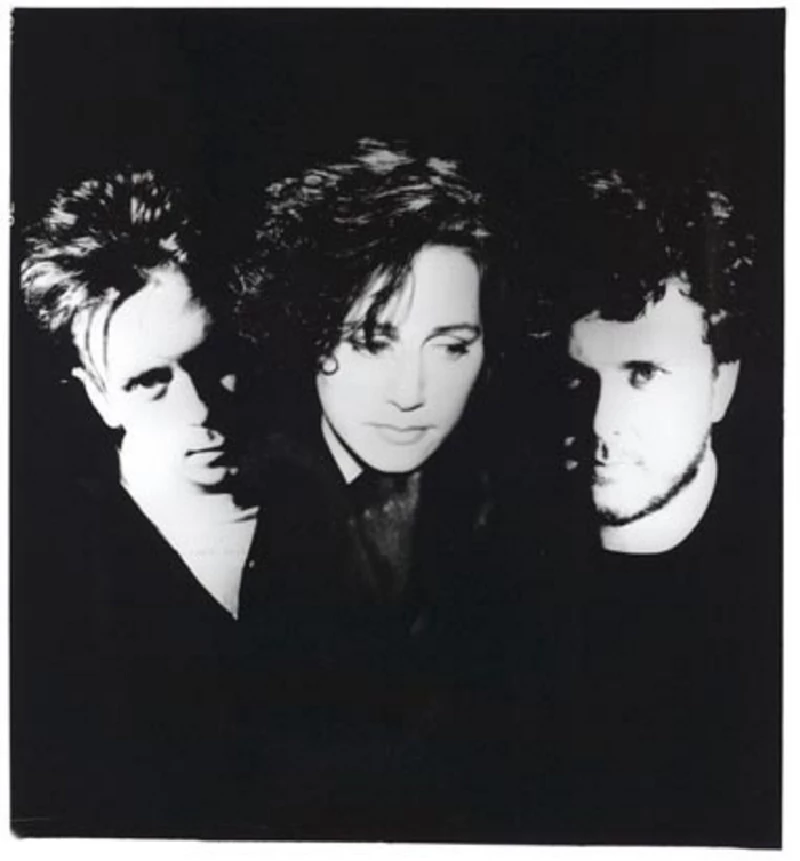
intro
A completely individual presence in British rock, the Cocteau Twins were of the most seminal acts of the 80's and early 90's. Guitarist Robin Guthrie talks to John Clarkson about the group's 15 year history and continued impact
Of all the acts on the flourishing independent music scene of the early 80’s, the Cocteau Twins, alongside Joy Division and the Smiths, were the most seminal. The Cocteau Twins’ rich and shimmering soundscapes, Robin Guthrie’s lush torrents of guitar and Elizabeth Fraser’s arcane, ethereal vocals which she sung in a language of her own made them from the outset a completely individual presence in British rock. 25 years on since they first formed and almost a decade since they finally broke up, the Cocteau Twins continue to command an influence over countless bands. Their mark can be heard on the music of, to list but a few, bands as diverse as the Sugarcubes, Lush, Mazzy Star, Slowdive and the Red House Painters, and more recently Sigur Ros, Mercury Rev and the Flaming Lips. The Cocteau Twins were formed in 1981 by Robin Guthrie and his friend Will Heggie (both b. 1962) in Grangemouth, a small industrial town midway between Edinburgh and Glasgow. Shortly afterwards they were joined by Fraser (b. 1963), whom Guthrie and Heggie spotted dancing at an alternative disco in Grangemouth at which Guthrie was the DJ. After sending a copy of a demo to Ivo Watts-Russell’s 4AD label which had then previously put out records by the Birthday Party and Bauhaus, they were quickly signed. Their debut album ‘Garlands’ was released by 4AD in 1982, attracting instant acclaim from fans and critics alike. Heggie left amicably in 1983 to form his own band Lowlife, leaving Guthrie and Fraser to record the Cocteau Twins’ next album, ‘Head Over Heels’ (also 1983), as a two piece. For their third album ‘Treasure’ (1984) they were joined by Simon Raymonde (b.1962). The Cocteau Twins remained with 4AD to record another three albums, ‘Victorialand’ (1986), ‘Blue Bell Knoll’ (1988) and ‘Heaven or Las Vegas’ (1990), and also with Californian experimentalist Harold Budd an additional album ‘The Moon and the Melodies’ which was released under their own names as Harold Budd, Elizabeth Fraser, Robin Guthrie and Simon Raymonde. By the early 1990’s the Cocteau Twins were in crisis. Fraser, who had revealed herself to be an incest survivor, was undergoing therapy .Guthrie, who had drug problems, had gone into rehab, and the pair’s own long-term romance and relationship had broken up. The band, however, survived long enough to record two final albums, ‘Four Calendar Café’ (1993), the first album to feature lyrics in English from Fraser since ‘Garlands’, and ‘Milk and Kisses’ (1996). Both records were released on the major label Fontana The Cocteau Twins dissolved in 1997 midway through sessions to record an unreleased third album for Fontana. In the nearly nine years since the group’s break-up, all three members of the Cocteau Twins have remained involved to different degrees in music. Simon Raymonde is the owner of the record label Bella Union , which he originally formed in partnership with Guthrie, but now runs solo. Liz Fraser has made appearances on albums by artists including Massive Attack, Peter Gabriel, Craig Armstrong and the Bathers, and also contributed to the film soundtrack of ‘The Lord of the Rings’. It is, however, Robin Guthrie who been the most prolific. He has recorded two albums, ‘Roulette’ (2001) and ‘Russian Doll’ (2004), with his current band Violet Indiana. He has also released a solo instrumental record, ‘Imperial’(2004), and has recently toured with an animated film ‘Lumiere’. With several new projects underway and a new 4 CD limited edition Cocteau Twins box set ‘Lullabies to Violaine’ in the shops, Pennyblackmusic spoke to him at his home in France both about the Cocteau Twins’ continued impact and his solo career. PB : Most people who start out in bands begin by playing covers and from that move on. The Cocteau Twins never seemed to do that. From the beginning you seemed to adopt a different course. RG : On a personal level that’s not strictly speaking true. I was in a punk band when I was about 14 or 15. We played things of the moment, but we quit it and soon gave it up (Laughs). I came at the guitar from a very different perspective. Will, Liz and I fell into being a band together. I have still got our very first demo, and you can hear the very early musings of the Cocteau Twins there. We played together for about eight or nine months and then just gave up. We thought “Fuck this” and stopped playing. Will and I had, however, bought this drum machine which was at that time technologically a new thing or it was to us anyway and because we had spent money on it we felt had to do something with it and so we started practicing again. We never from the outset did any other peoples’ songs. You know when you are a teenager you’re trying to grasp some sort of identity, aren’t you ? You want to make some sort of statement. I was really into electronics and so was Will. We were both geeks like that. I was into fuzz boxes and pedals and things like that and I ended up putting them into my guitar. I also had this idea that I really couldn’t play for shit. All my mates would pick up the guitar and would all copy Jimi Hendrix, and I couldn’t do that (Laughs). I also just wanted to sound like something else. Some of the earlier noisy things I was influenced by were bands like the Birthday Party and the Pop Group and groups like that, people who were using the guitar like a thoroughly different sort of instrument. PB : You grew up at the time of punk. Do you think punk and post punk gave you the encouragement you needed to do absolutely what you wanted ? RG : I was actually a little bit too young for punk. To my eternal discredit one of the only original punk bands that I ever saw was Generation X, and they were hardly first level. I was sneaked in through a toilet window to see Generation X when I was about 14. I did, however, certainly buy punk records from 1976 onwards. Punk did give us the ability to do what we wanted. I came into it absolutely without any pretension. I saw it like a wee boy perhaps would. I was hugely excited that here was this movement which was all about doing what you wanted to do and in the way you wanted to do it. It gave me the headspace to think “We can have a drum machine. We don’t have to have a drummer” and “We can have all these fuzz boxes and things”. I have told the whole story about how we got a record deal often, but, to illustrate that point about headspace, we made two copies of our demo. We couldn’t copy the cassettes so we played the songs twice in my Mum’s living room and then we took them to London. We gave one to John Peel and the other one to 4AD because we liked some of the stuff on 4AD, and then we came back to Scotland and waited for the phone to ring. PB : And it did ring ? RG : It happened for us twice. Peel gave us a Peel session, and 4AD picked up on us and we signed a deal. PB : It is unbelievable really ! RG : It was completely youthful naivety. It’s a beautiful story really because the music industry doesn’t work like that. In fact it was a long time before I realized that it doesn’t work like that. PB : ‘Garlands’ was apparently recorded really quickly, wasn’t it ? It was within days of you signing to 4AD. RG : It was in a week. Something like that. There was a lot about 'Garlands' that we were really, really unhappy with. One of the things we had done on the demo and used to do playing live was put our drum box through fuzz pedals and guitar amps, so that it came out sounding really mashed up which was what the hip hop guys came up with a couple of years later. When we got to the studio there were all these technicians who were like "Oh no, you can't do this stuff." We felt really intimidated. They wouldn't let us touch any of their stuff. It was like we were wee boys and they were grown-ups. We were like "You set up the drum machine like that" and they were like "Oh no ! You can’t do that. It's going into this red socket." The drums as a result came out sounding clean and drum machine pristine. It was disappointing. It's just one detail, but it is like a personal reflection of that whole album to me. I've actually got a couple of live tapes of the early days and to listen to them now it is like "Wow ! That is fucking monstrous." We were very fucking noisy and very loud live. One of the things Ivo used to say a lot was that he couldn’t really hear Liz on the original demo we gave 4AD at all. It was an added bonus for him. When he first met her and heard singing he was really surprised. He hadn't heard her at all. PB : Will Heggie left shortly after ‘Garlands’. RG : No, he left actually not far off two years after ‘Garlands’ halfway through a tour. Both Liz and myself felt that we couldn’t keep going up and down on the night bus to Scotland as we both wanted to live in London, and he wasn’t prepared to move down. That was in ‘83 and ‘Garlands’ was made in December 1981. PB : He was eventually replaced with Simon Raymonde ? How did Simon become involved ? RG : Will was replaced with Simon Raymonde, but that was nearly three years later. We did ‘Head Over Heels’ and a British tour and also some shows in America by ourselves. Simon had been working in the Beggar's Banquet shop and he had been in this band called the Drowning Craze which we quite liked. One thing led to another and he came on board. PB : All the Cocteau Twins albums and EPs were unusual for the time because they had no band shots on them. You always put an emphasis on the music being stronger than the personalities of the band. Whose decision was it not to have band shots on the CDs ? Was that yours or 4AD’s ? RG : That was ours, but 4AD were, however, very influential with the artwork. We, however, liked what they did and were very happy to be represented by them. PB : The Cocteau Twins were for a long time the really pivotal 4AD band.. Why do you think that happened ? RG : I think it was just that time and era. I think if it had been before the 80's we would not have had so much direct influence on things. PB : Ivo said that his aim was to make music that was timeless and free of any trend, movement or era. Do you think that the Cocteau Twins achieved that, and that might also have been part of the reason why you became so successful ? RG : I think so. Yeah ! 'Treasure' sounds to me like a really dated record, because of the early digital stuff and the technology we used on that record. It's got good things on it, but it's certainly not got that timeless quality. 'Head Over Heels' is more timeless and 'Victorialand' certainly is, because they were not engrained with the things of the moment. PB : You remastered all the 4AD albums in 2003 and 2004. RG : That's right. I would never want to do that again, but I felt I had to because quite simply if I hadn't then they would have got somebody else in to do it. As far as I am concerned it was just a marketing thing on their behalf, but I didn’t want anyone mucking around with the music. There’s the new box set, ‘Lullabies to Violaine’, as well. It’s got 59 songs on it. It’s too much. It’s like "That's it. Close that fucking chapter ! I do not want to fucking mess with this anymore." PB : You've not been entirely complementary on your blogspot about ‘Lullabies to Violaine.’ RG : I haven't , have I ? But having said that I got sent a copy of it and it's fucking gorgeous. It's really good. I am going to have to retract that, and say "Well, don't go and buy this, but it's really fucking cool !" My real argument with it and the remasters is that it's 4AD and Beggar’s Banquet’s property now, and myself and my family or Liz's family will not benefit from it. I am really cynical about that because they did the most cynical thing in the world, which is hold us to the original contract we signed when we were really young and without any sort of legal advice. That is monstrous you know. It's a trap which so many people of 18 or 19 find themselves in. It has been happening to everybody since fucking Elvis. PB : How did the Cocteau Twins create their songs ?. You had your own September Sound studio in London for years. Was there a strict format ? RG : Basically it would always go along the lines of me being a control freak (Laughs). I would generally start things, and after that things would become somewhat blurred. Generally I played the guitar and sometimes I played the bass. Sometimes Simon played the guitar. He would often play the piano if we had the piano. Liz would sing, but she would sometimes occasionally play the glockenspiel or other things as well. As far as creating the songs, it was very much a case of me building up layers of things. I would start with a drum beat or something very basic and then play one thing on top of it, and then add one thing which went along with that, and then add something else which went along with it, and so on. We would then add sound effects, putting different instruments through different parts of the stereo. It was all very intuitive. It is the way I record to this day. I have never learnt any proper professional recording techniques (Laughs). PB : Where did the concept of Liz singing in her own language come from ? 'Garlands' featured lyrics, but up until 'Four Calendar Café’' none of the other albums did. RG : You would have to ask her that, but my view is that she got focused upon or singled out for sounding incomprehensible when actually the things she was singing were quite comprehensible. She was just singing them in a more interesting way than just singing them straight. PB : The Cocteau Twins did not have any direct meaning to their songs, in contrast to Joy Division and The Smiths who were the other big bands of the era. RG : People who liked the Cocteau Twins really liked them. They didn't like them casually. What happened at that time was interactive. You had Morrissey droning away with some story, so there was only one way in which you could take that which was very literal. There was no room for you to use your imagination, and, therefore, you held onto it in a certain way. When you get faced with something like the Cocteau Twins, you have to work a little bit and it gets your imagination firing. That's why we always tried to avoid video. If you tied a video to a song every time you heard that song you would see the video in your head. Everyone who listened to the Cocteau Twins would hear something else in their head or see different pictures or have their own interpretation. I think that is why people held them so close to their hearts. PB : That ties in then with the packaging as well. If you have band shots on the sleeve, then that makes things less open to interpretation. RG : Yes, definitely ! Yeah ! PB : You did a lot of interviews when you were in the Cocteau Twins. You, however, said at the time that you didn't like doing them. RG : It was often difficult. We were just kids really and we didn't really know much about anything, and suddenly we were confronted with all these big name journalists. From our first record we started doing all these high profile interviews. They would come with these questions which were like fucking three or four sentences long and you could really only answer "Yes" or "No" to them because they already made up their mind about what they were going to say. It just went totally over our heads, these really high ideas about philosophy and shit like that. At that moment in our lives it was like "What's going on here ?" We found too when these things were published that we were often quoted in Scottish, which made us look really thick. "Och, I didna ken" and things like that. That turned us off a bit. Interestingly enough it did well for the Jesus and Mary Chain (Laughs). We didn’t have very much confidence in ourselves. We were quite shy and to have all these people with all these different theories about what it all meant it was pretty overwhelming. One very well known journalist went "Ah, so the Cocteau Twins then. Why ?" We were like "Why what ?" and he went "Why ? Explain yourselves" I could probably make quite a good stab at it now, after 25 years of doing this, but at that stage it was just completely beyond us. PB : 'Heaven or Las Vegas' was Ivo Watts-Davies’ favourite Cocteau Twins album. It was many critics and many fans’ favourite album as well. It was also your last 4AD album. RG : We were actually still signed to 4AD when we made 'Four Calendar Cafe'. We didn't have a new deal. We didn't sign to a major to make that record which is a popular misconception. We were just sort of floating and weren't sure what we were going to do next. We knew that we were probably going somewhere else, but we hadn't signed any deal. The conception at that moment was "Oh, they've changed. They've gone to a major", but that was not the case. The way that record was received was that we somehow had changed because we had gone to a major, which I find a bit ridiculous. It was a very difficult record to make. Liz and I were going through a lot of turmoil in our lives at the time we made that record. We went through our entire 20's in a fucking little bubble, a little cotton wool world, where everybody looked after us and we had never grown up and never paid our own gas bill or done any of the other things which people do as they grow up. It is like we bought a house. Along the way we signed a bit of paper and then moved in. We were really far removed from the reality of growing up, and so we ended up with her in therapy and me in rehab with a drug problem. Halfway through 'Four Calendar Cafe' I ended up in rehab for a couple of months, so I recorded half of it when I was really fucked up and then came back and recorded the other half of it after I had got myself clean. The ironic thing about that record is that all the up-tempo, happy ones on that record were written when I was messed up, and all the gloomy ones were written when I was clean (Laughs). I felt quite good about that actually. It was like we were back on track. It is one of these curious little anomalies of which there was a lot with the Cocteau Twins. Another curious little anomaly is that 'Head Over Heels' is a big dope record. I was on downers and dope, and that's an in-your face, joyous, big noise record. I was on a lot of speed, cocaine, shit like that and uppers at the time of 'Victorialand' and it in contrast was an introspective, quiet sort of thing. I have given up trying to analyse it. There are too many anomalies along the way. PB : To pick up on your point about being in rehab and Liz being in therapy, your relationship had also broken up at that point. Any single one of those factors would have been enough to break up most bands, yet you kept on going for another five years. Why do you think the band lasted so long after that ? RG : I think folk don't give us credit for going on as long as we did. The question is more like why didn't we break up (Laughs). There is a difference. It existed. It didn't last. My heart left it at 'Milk and Kisses'. We did a couple of EPs, ‘Tishbite’ and ‘Violaine.’ after that, which were just meaningless and which were not what we were about at all. We tried to make another record and it was shelved. Liz just lost it and said "I can't do this anymore". I think it was really sad. Poor Simon was in the middle for us between for quite a while. PB : The Cocteau Twins were supposed to play a reunion show at the Coachella Festival in California last April, but that fell through. What went wrong there ? RG : I don't know yet. We met up for the first in God knows how long, and we got on really well and then Liz pulled out. Five or six weeks later she said she couldn't do it. I was really upset (Laughs). I would have liked to do that, but it wasn't to be. PB : To move forward to your present recording career you've been working on an album with John Foxx who used to be in Ultravox. How did that come about ? RG : I saw him in 1978 in Grangemouth Town Hall, and that was the last time I saw him. I thought he might have remembered me (Laughs). I was doing Harold Budd's retirement concert, and, as John had made a record with Harold, he was at the concert as well. I really loved what he did with Harold, and then he came up to me at the sound check and whispered in my ear that what I was doing was absolutely fucking beautiful. I thought "Well ! I'll be his friend" and then he insisted that what he was doing these days was so similar to what I was doing that we should make a record. I was like "Why not ?", and so we decided to try it. If it didn't work out we would have lost nothing, and so he came over here to France and we made an album, ‘Second Skin’, in a week. PB : Is that going to be released soon ? RG : Yeah, it should be out in the first quarter of 2006 on John’s label, Metamatic. It is beautiful. It sounds remarkably like me and him. It was great to be able to work so energetically and so quickly with someone as talented as him. PB : Can you see yourself touring with that ? RG : No, I don't think so unfortunately. PB : Is Violet Indiana still a going concern ? RG : We'll do something next year. Siobhan de Mare (Violet Indiana vocalist-Ed) took some time off to have a baby, but we both want to do some more stuff maybe next year and then another bunch of concerts. We'll get around to it. I am constantly in the studio doing stuff, and I’ll sometimes say about something I have started "That will be great for Siobhan" and I will put it into one pile. Other things might be more atmospheric and I’ll think "That's instrumental" and that will, therefore, go into another pile. I still have within me is the need to work with more traditional song writing, but in the same way I now feel the need to do more scoring and stuff like that as well. PB : When you write music do you find yourself writing then for specific camps ? RG : No, I usually start off with a fairly blank slate and then fairly early on in the process or very early on in the process, after I have usually made up a drum beat or something to play along with it, it will become evident if it is going to be a song in which case it will go in the Violet Indiana camp, or, if it is less structured and more free, then it will go in my own tent. PB : You have also been touring with ‘Lumiere’. That’s an animated film, isn’t it ? RG : Yes, it is an animation. I made the original version of it myself about two to maybe three years ago. I have no interest in making film as in traditional film. I do like to explore though other new ways of creating and I basically came across the software that would enable me to write videos in the same way that I would write music. It involved layering stuff up, which was very intuitive to me because I have been making music that way for a long time. It was a natural progression. ’Lumiere’ consists of some stuff I had shot, some stills and lots of other random loose material. I then messed it all up and made something that I could use in live performance rather than just playing shows on my own. I felt that it was never quite enough to have me on stage with my guitar for forty minutes, firstly I because I had everybody looking at me (Laughs) and secondly because it didn’t feel complete as well. The show basically consists of me sitting on the side of the stage and playing along to the film. I have done a special edit of it for recent shows and added about 15 minutes of new stuff into it and rearranged all the original music on it. I have started to play some things from ‘Continental’, the new solo album that I have got coming out, and also the ‘Serious Skin’ and ‘Imperial’albums. PB : ‘Continental’ will be your second solo album. What does that sound like ? RG : It is not like ‘Imperial’. It is much more at times in your face. It is not as down tempo. I figured that ‘Serious Skin’ and “Imperial’ were down tempo and if I did another record like that it would be setting the tone for what is to come. I don’t really know what is to come, and, therefore, I wanted to keep it a bit more free and to avoid the constraints of keeping it all mellow. ‘Continental’ is instrumental, but it has a big sound. PB : And that will coming out next year hopefully as well? RG : Yeah ! PB : Do you know who you are releasing it through ? RG : No. I don’t know. I am not going to be putting it out on Bella Union because that has not been very good for me really. When I was doing Bella Union with Simon I had to do all my work on my own record. I don’t have the patience or that kind of energy. I am not like that at all really. PB : It seems to be quite an exciting time for you. You’re still promoting the ‘Lumiere’ film. You’ve got ‘Serious Skin’ and ‘Continental’ coming out, and you’re going to be working on the new Violet Indiana record RG : Yeah ! I am going to be releasing three albums over the next year. PB : It’s a pretty impressive achievement. Thank you for your time.
Picture Gallery:-
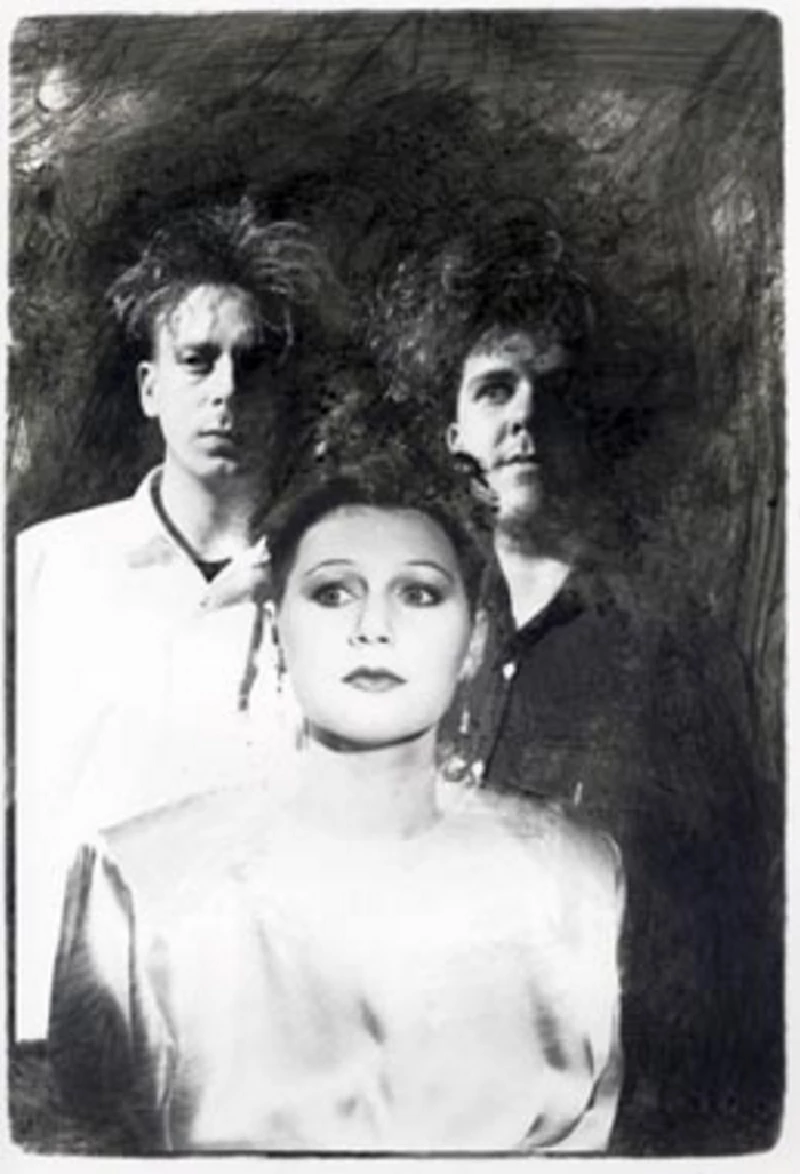
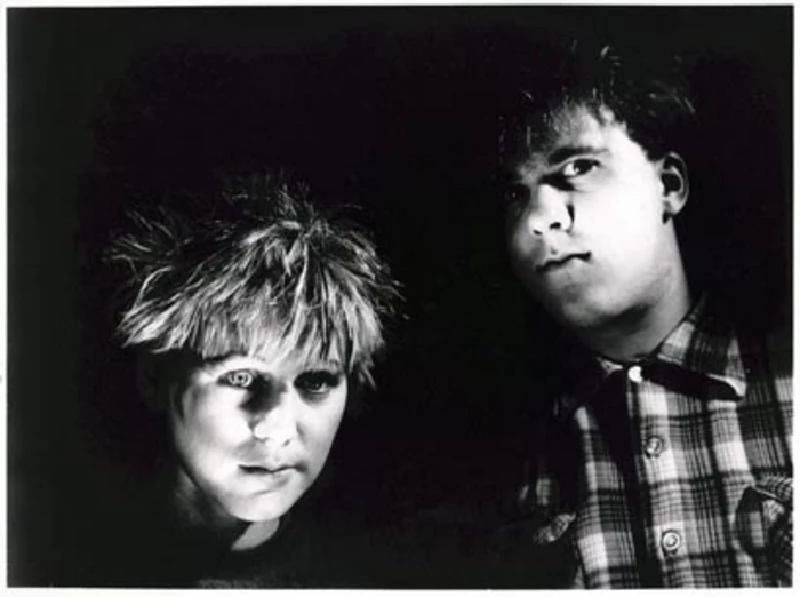
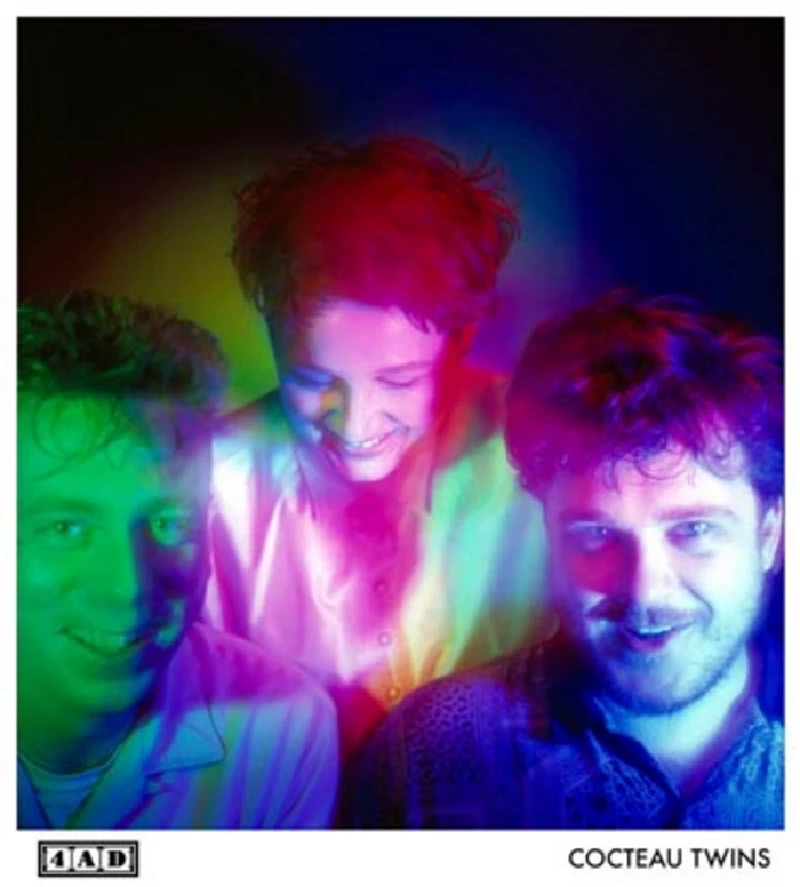
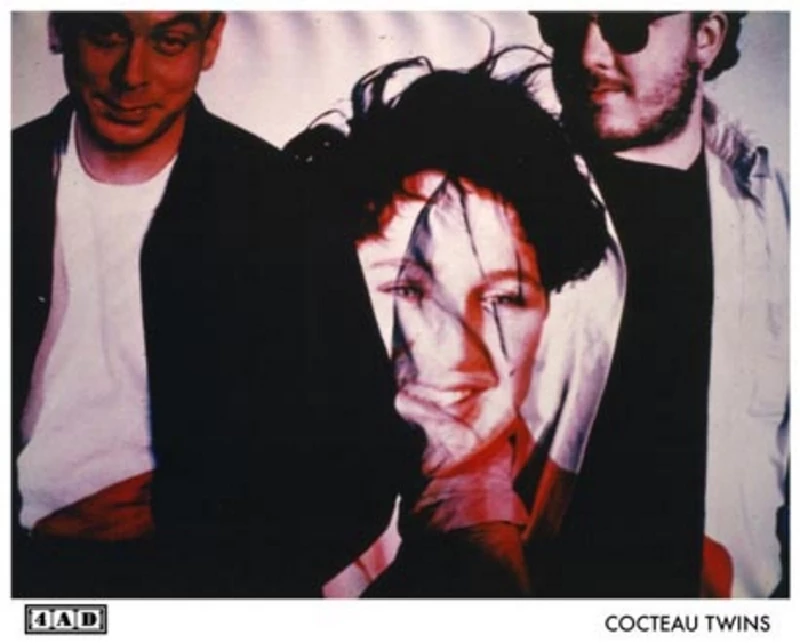
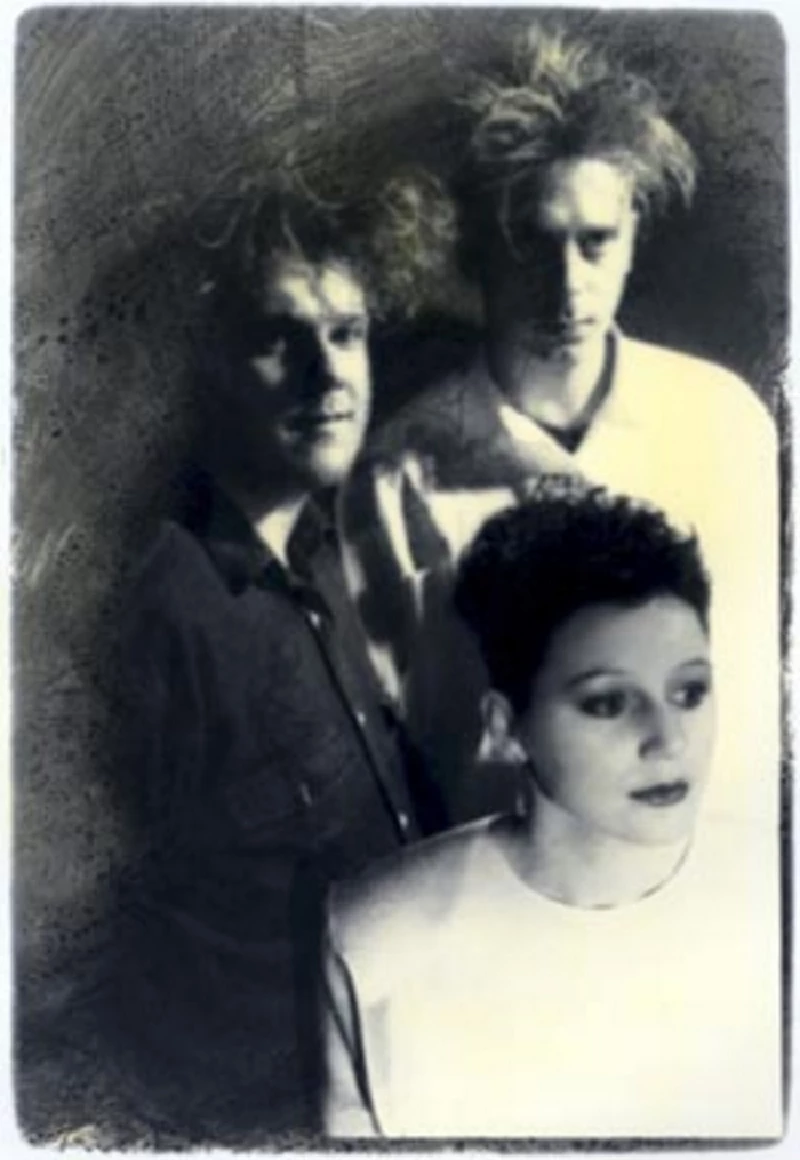
most viewed articles
current edition
Carl Ewens - David Bowie 1964 to 1982 On Track: Every Album, Every SongArmory Show - Interview with Richard Jobson
Colin Blunstone - Thalia Hall, Chicago, 16/7/2025
Bathers - Photoscapes 1
Visor Fest - Valencia, Spain, 26/9/2025...27/9/2025
John McKay - Interview
Billie Eilish - O2 Arena, London, 10/7/2025
Robert Forster - Interview
Sir Tim Rice - Interview
Loft - Interview
previous editions
Heavenly - P.U.N.K. Girl EPManic Street Preachers - (Gig of a Lifetime) Millennium Stadium, Cardiff, December 1999
Beautiful South - Ten Songs That Made Me Love...
Pixies - Ten Songs That Made Me Love...
Oasis - Oasis, Earl's Court, London, 1995
Prolapse - Interview
Trudie Myerscough-Harris - Interview
Paul Clerehugh - Interview
Doris Brendel - Interview
Simon Heavisides - Destiny Stopped Screaming: The Life and Times of Adrian Borland
most viewed reviews
current edition
Sick Man of Europe - The Sick Man of EuropeLucy Spraggan - Other Sides of the Moon
Amy Macdonald - Is This What You've Been Waiting For?
Phew, Erika Kobayashi,, Dieter Moebius - Radium Girls
Davey Woodward - Mumbo in the Jumbo
Alice Cooper - The Revenge of Alice Cooper
Bush - I Beat Loneliness
Blueboy - 2
Cynthia Erivo - I Forgive You
Suzanne Vega - Flying With Angels
Pennyblackmusic Regular Contributors
Adrian Janes
Amanda J. Window
Andrew Twambley
Anthony Dhanendran
Benjamin Howarth
Cila Warncke
Daniel Cressey
Darren Aston
Dastardly
Dave Goodwin
Denzil Watson
Dominic B. Simpson
Eoghan Lyng
Fiona Hutchings
Harry Sherriff
Helen Tipping
Jamie Rowland
John Clarkson
Julie Cruickshank
Kimberly Bright
Lisa Torem
Maarten Schiethart